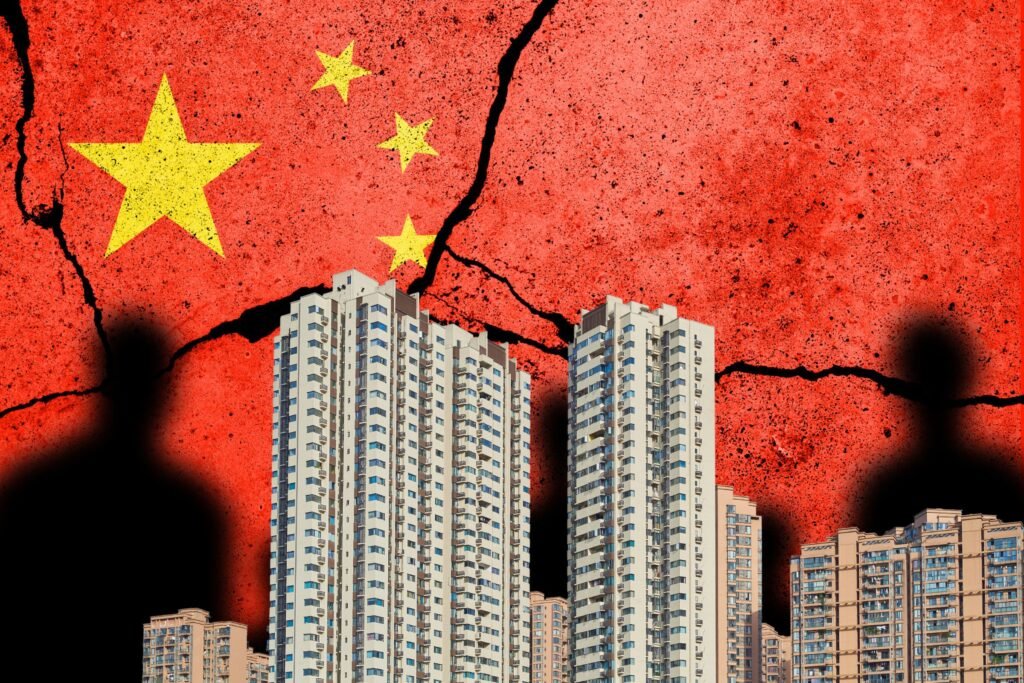
China has been facing a major problem in its housing market which was once one of China’s most promising and fastest growing sectors. The rate of property sale has been slower with declining housing prices to an extent that has resulted to an economic mess that has not been closed. While more risks are expected to emerge, implications for the overall Chinese economy could be serious, according to experts.
1. Housing Market in Freefall
In the last few years, China’s property market has swung from being a giant that everyone wants to emulate to an albatross that weighs heavily on the economy as the buying affects and home prices drop. From the most recent information, China’s resale home prices have been down by 0. 71% in July 2024 showing that its market is still in deep trouble (CNBC). This decline has come at a time when China has been experiencing other economic problems, some of which include the collapse of big real estate companies and low confidence in consumer spending.
In fact, housing prices have begun to decline for the most recent periods across all the regions and not only in big cities alone. Several cities in China that were at the forefront in experiencing the property market bubble have recorded sharp declines in property prices including Beijing and Shanghai. This has created panic among homeowners and investors whereby many investors are now stuck with their houses whose prices are still dropping lower.
2. The Backdrop to the Sources of the Conflict
China’s housing problems have not developed in a day. The country’s real estate market had already burst and the price for properties reached extreme levels far from the average income of the citizens. More to that, Chinese developers have for years relied on debt to finance development, which has led to excessive construction of buildings and houses to accommodate the increasing urbanization. But, this growth was not sustainable, and this damp air of the market was visible in 2021, when some of the leading property developers such as Ever Grande was in debt (The Global Treasurer).
3. From Boom to Bust
In the past, the real estate sector as part of the housing market had a large impact on China’s economy; at one point, the sector comprised 30% of the overall GDP of China. However, this type of dependency on property development has been a double edged sword in the entire process. Market which was booming is now bust and the whole economy has bottomed out. Large construction projects have been brought to a standstill, many thousands of workers in the property industry have been left unemployed and local government finance based on land sales revenue is in decline (ICIS).
There is also the effect that the housing bubble has had on other areas of the economy such as manufacturing and commodities. The requirements of steel and cement which are some of the raw materials used in construction have significantly reduced affecting industries that benefited from construction. The same has caused more pressure to the already-reeling Chinese economy and has thrown it out of balance.
4. Record Price Slump & Its Effect
To mid-2024, the Chinese property price index had plunged to its worst, with house prices registering the worst decline in the country’s history. So the emerging market and especially the biggest economy in this region – China suffered – reported declines of nearly 1% in 100 cities’ property prices in June 2024 only (CNN). This was the largest monthly decline since China started recording its real estate market which proves that the slump is far from over.
This extended period of decline is becoming heartbreaking for those who invested in the houses with many being stuck in homes whose market price is lower than the purchase price. This cut has served to reinforce consumers’ sense of psychological loss by making them more tentative about getting into housing at the present time. This gives way to stagnation, which then leads to the failure to realize new investments due to the manifestation of collapsed markets which then lead to low prices.
However, some economists insisted that fundamental changes are required to eliminate the causes of the deterioration of the housing market. Some of the changes that it contains are: reducing the property sector leverage, encouraging affordable housing projects, and going from using property to fund non-core business activities to emphasizing on stable and sustainable growth models. Further, the policy initiatives for increasing consumer confidence and achieving the right balance in supply of housing and demand are critical for sustainable and sustainable revival.
Conclusion
China’s housing market decline can be considered as one of the biggest issues the economic system of China has ever faced. Analyzing the crisis manifestations, it is possible to make the conclusion that they affect not only the sphere of real estate and its market but also the economy as a whole. Hoping you can do better to examine the forecast of China’s housing market as the price of property still drops and demand side is getting poor.
Measures taken by governments can help remedy the situation temporarily although a substantial long-term solution requires targeting of the sources of vulnerability within the structure of the market. The way forward for China’s housing market will be a significant overhaul of current policy and practices, restoration of investor confidence and diversification of China’s economy away from over reliance on property development.
Discover the New Articles and Updates
Learn more about what is happening in various fields by visiting New York Central Post, a blog where you will find articles on the most relevant topics.








